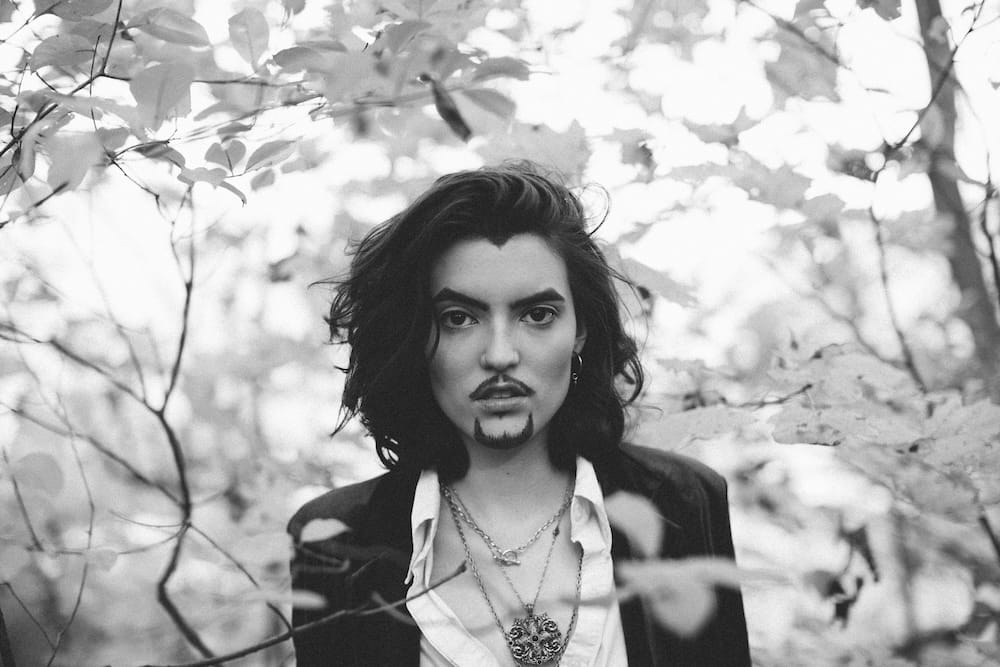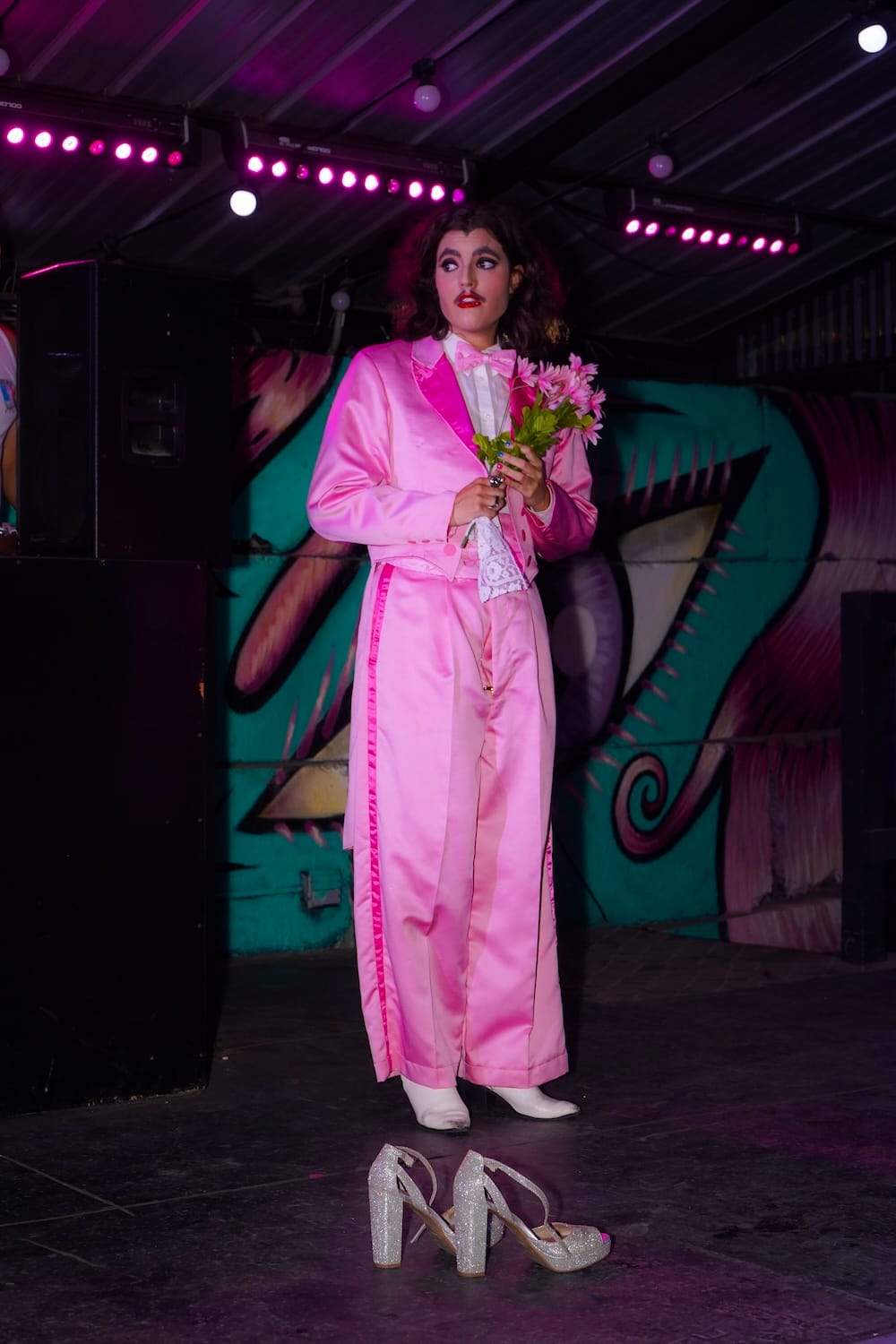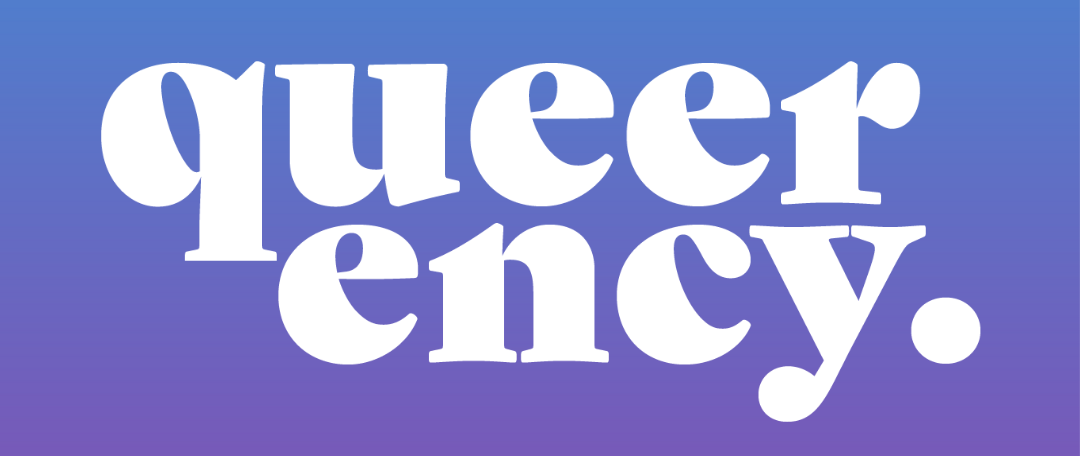The Business of Drag is a Queerency interview series exploring the entrepreneurs, innovators, and artists of the drag economy.
Key Takeaways:
- Don’t quit your day job: having a steady form of income outside of your side hustle–whether it be drag or a small business–can empower you to pursue your passion
- Consider your income vs. your expenses: if a gig is not going to be financially fruitful, cut costs by recycling costumes and equipment
- Be intentional when building your brand: what you stand against (in Maxxx’s case: toxic masculinity) can be as important as what you stand for
Maxxx Pleasure is an award-winning Brooklyn-based drag king. He’s performed at the legendary drag festival Bushwig, as well as at Sasha Velour’s Nightgowns and with drag collective Switch n’ Play. He’s also the star of the short documentary film Maxxx as well as host of his own YouTube channel, where he discusses queer culture and tips for drag performers.
We caught up to chat about how he got started doing drag, balancing drag and a full-time job, and his advice for new performers.
What was the process of getting started doing drag?
When I was in college, my school had a drag competition and it was just a fun thing to do to get to know other queer people on campus; there was no tipping or anything like that. And then I kind of did drag every opportunity that I could. It wasn’t about the money—it was just about doing drag. And then, in 2016, I started booking real gigs and that’s when money became part of it. 2017 was when I was officially really moving on my drag journey.
And how did you develop Maxxx Pleasure? How did that person come about?
I was really at a loss of what to do when I first started; I didn’t know how to be masculine without leaning into characteristics of toxic masculinity, because those were the characteristics that were top of mind–like aggressive and hypersexual. I had to figure out what kind of man I wanted to be and then decided on the rock star character because that’s a character that’s so easily legible to people. It felt very masculine without me having to show up and be aggressive and hypersexual all the time. Those things can be insinuated by the rockstar character because, of course, part of the rock-and-roll lifestyle is trashing hotel rooms and stuff like that. I don’t go around trashing hotel rooms or being an alcoholic…any more [laughs].
It was a really cool guy to be and that look really excited me, but it also worked very well with my skill set at the time regarding makeup, and I didn’t like wearing wigs, so a rockstar of course has messy shoulder length hair.

Did you have any formal training in regards to makeup or performance or costuming?
No. It’s actually kind of funny because I feel like a lot of my life has kind of equipped me perfectly when it comes to drag. I dabbled in musical theater when I was in middle school and high school. I got into Comic-Con for a little while—I was never a serious cosplayer, but it did always excite me. My sister and I always went really hard for Halloween. I was a Girl Scout so I learned how to be very crafty. Even the things I learned in school helped me as a drag performer: the more business-ey side of things like promoting on social media, video and audio editing. I think it’s funny that I just so happen to have all this informal training.
How do you fit drag into your overall professional life?
I like to say drag is my passion. Calling it a hobby would be doing it a disservice. It is truly the most important thing in my life, but it’s not the way I pay the bills. I’m fortunate to have a full-time job and that’s my primary source of income. With drag, I of course make money from it and try to be smart about the money side of things. How much money am I going to make, how much am I going to invest in costumes and acts. I’m in this sweet spot where I do make money from drag, but it’s not the most important part of it.
Do you consider drag as something you’d want to do full time, or are you comfortable with this split?
I would love to devote every hour of the day to drag. I would love to be making new mixes and rhinestoning things and learning to sew—I want to learn to sew so bad. I would love to devote full time to drag. However, that would mean I’d have to take it even more seriously to be like, alright, what’s the pay? Let me do some math. Are these gigs going to keep me afloat and pay the rent? I’m lucky that’s not part of the equation right now. I can say no to gigs that I’m not passionate about. I will see what the future holds, but right now I’m super happy with the balance that I have.
Drag performers operate as their own small business. What are some of the logistical things that someone who’s starting out might want to think about logistically and financially as their career develops?
That’s such an important aspect of it that I think some people don’t really consider when they first start. As a new performer, you’ll find a lot of opportunities that are available to you are open sets or competitions, and those are tip spots. You’re not getting paid a base rate, but any tips you make are yours. If anyone expects drag to be an instant money maker, I would caution against that because it does take time to get the opportunities where you’re offered a good enough base pay and you’re performing in places where tipping is generous.
The pay you get for a gig should be factored in with how much you spend on it. If I’m doing a gig that I don’t expect to be fruitful monetarily, I’m not going to get a new outfit for it. If you get a new look, you have to create new props and stuff–that costs money. Then, of course, getting to and from the gig in a safe manner; you might not want to take the train and have to take a car. Drag can be very expensive.
Another piece of advice I give to new performers is to be conscious of the fact that just because drag is fun, it should not be bleeding you dry monetarily or emotionally. When you’re young, you can throw yourself in there; but I do say caution should be exercised.

When you’re booking as a drag king, do you notice a difference in how people respond to a king versus a queen?
There have been many a time in the last seven years where I’ve done a show and the producer tells me, “Wow, you’re the first drag king we’ve ever had.” Which is exciting to break down that wall, but also, like, wait—what do you mean? It’s 2024…
Sometimes drag performers don’t know how to interact with a king; they get tripped up on the pronouns. I know many kings who’ve been referred to as “she” on the mic. I use exclusively he/him pronouns and sometimes I get they/them-ed on the mic and I’m like, “So close.”
What’s something about being a drag king that you wish more people in the general population knew?
Well, I guess I would like everyone to know that drag kings exist, first of all. And second of all, I would like people to know that drag kings differ from one another in exactly the same way that drag queens do.
You can see more from Maxxx at his Instagram and on Youtube.




